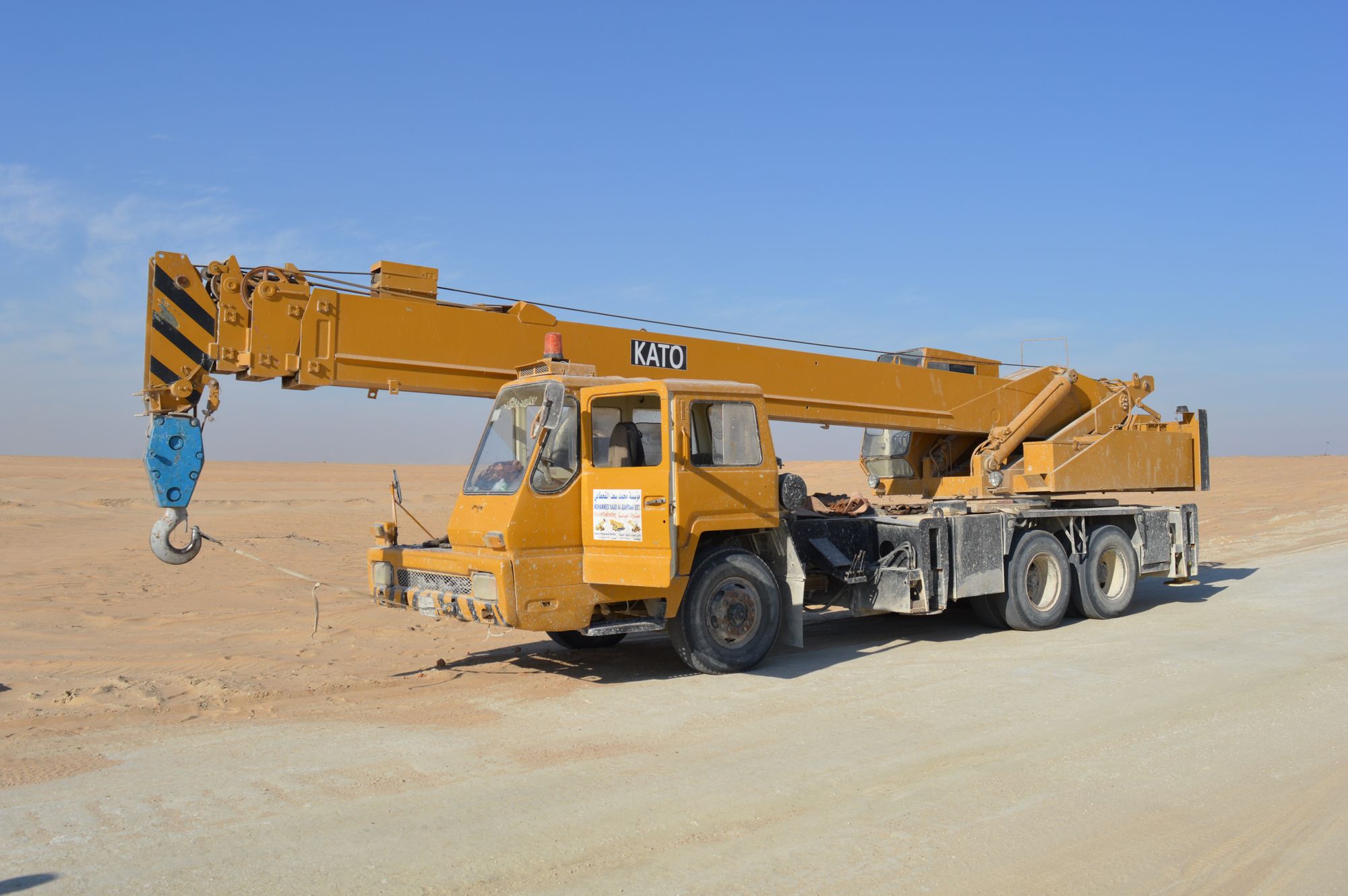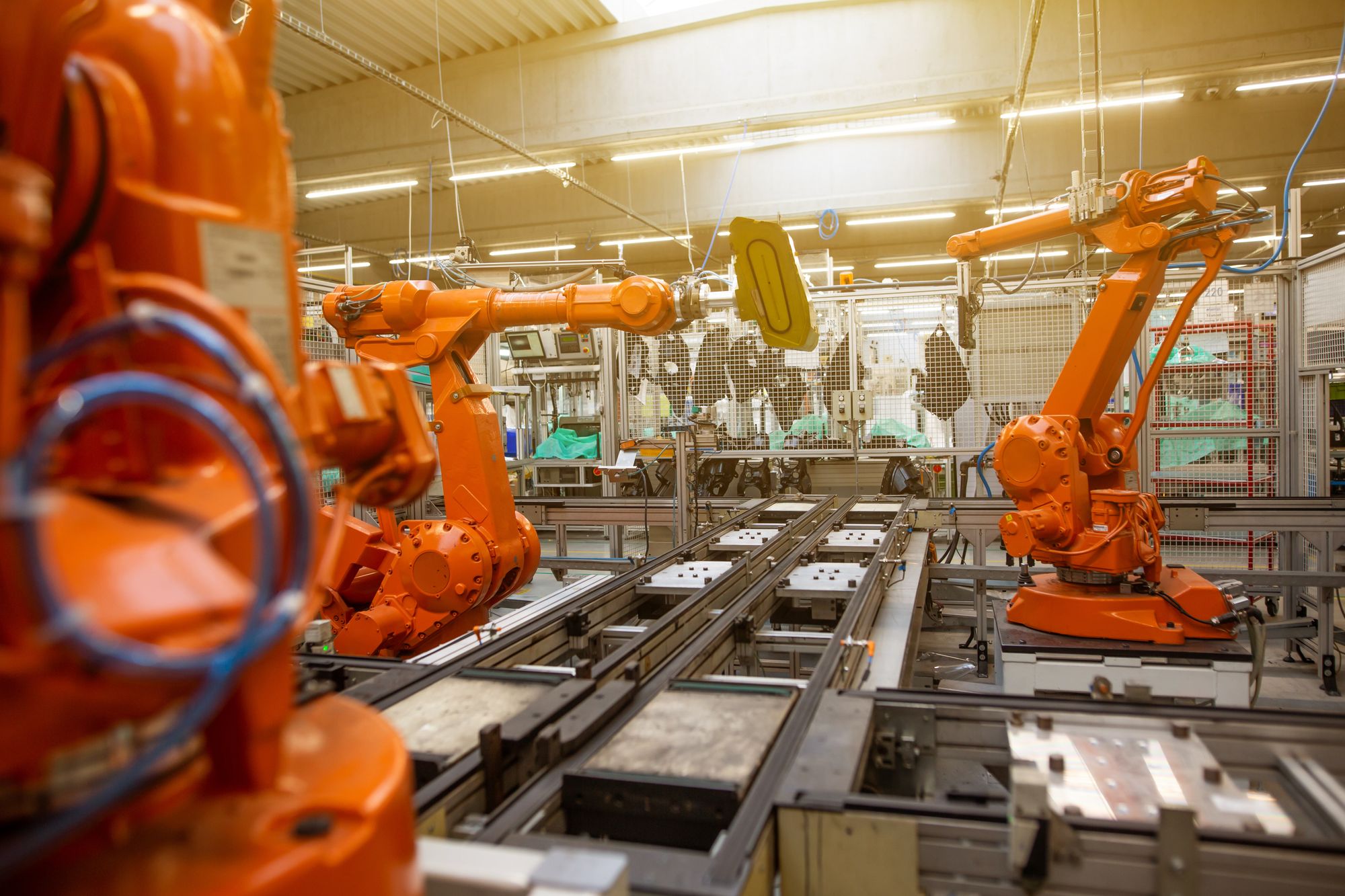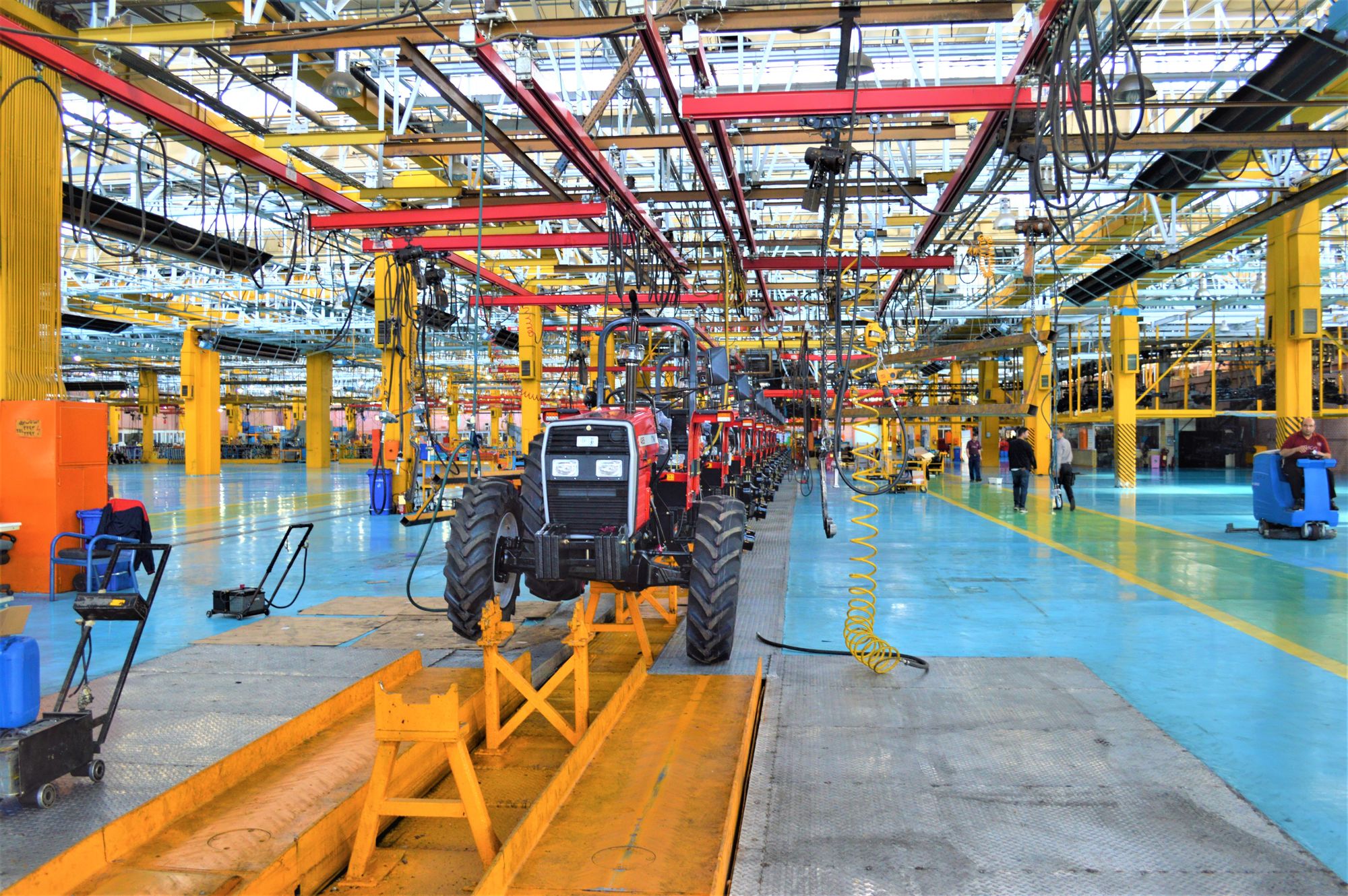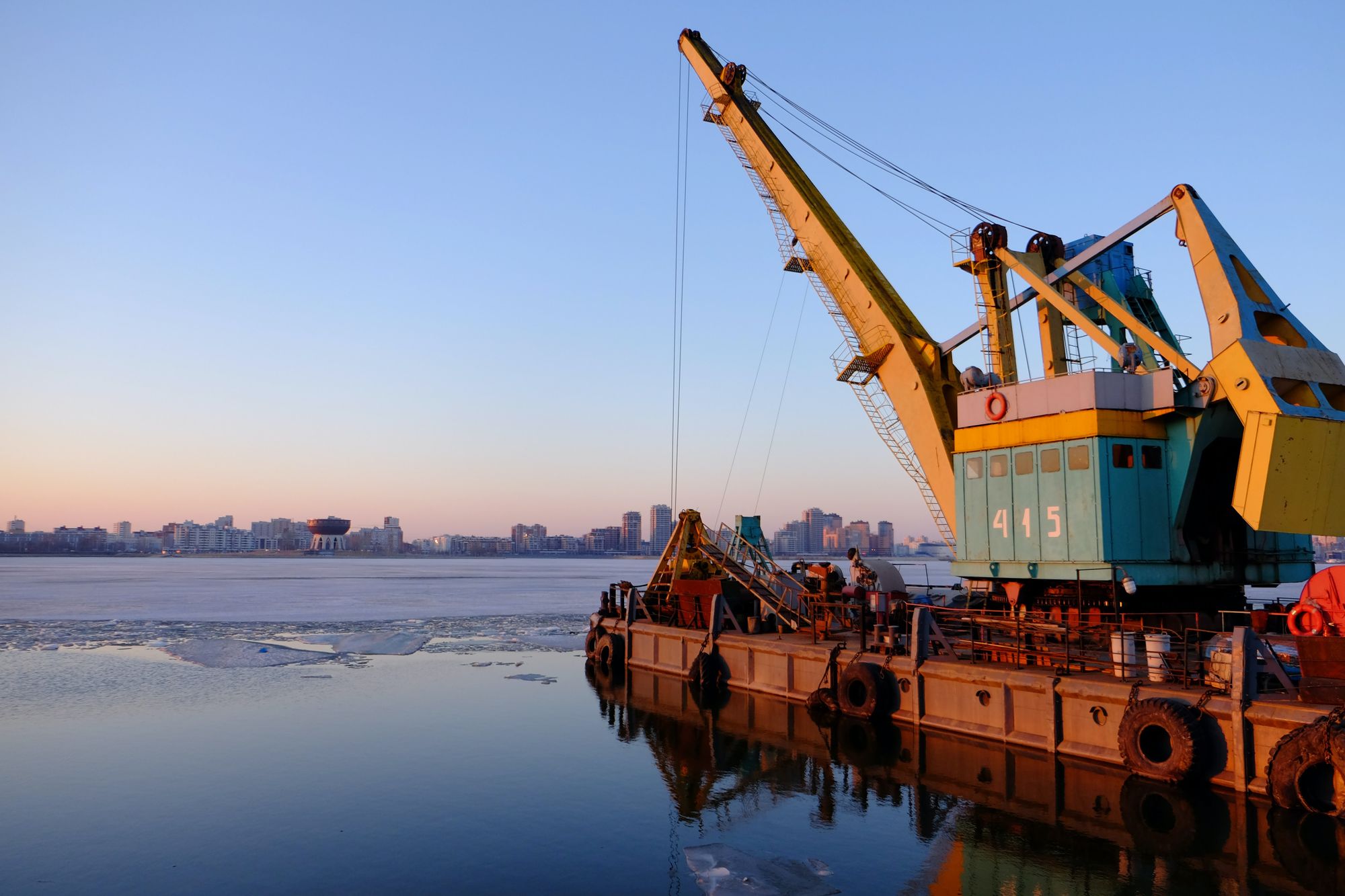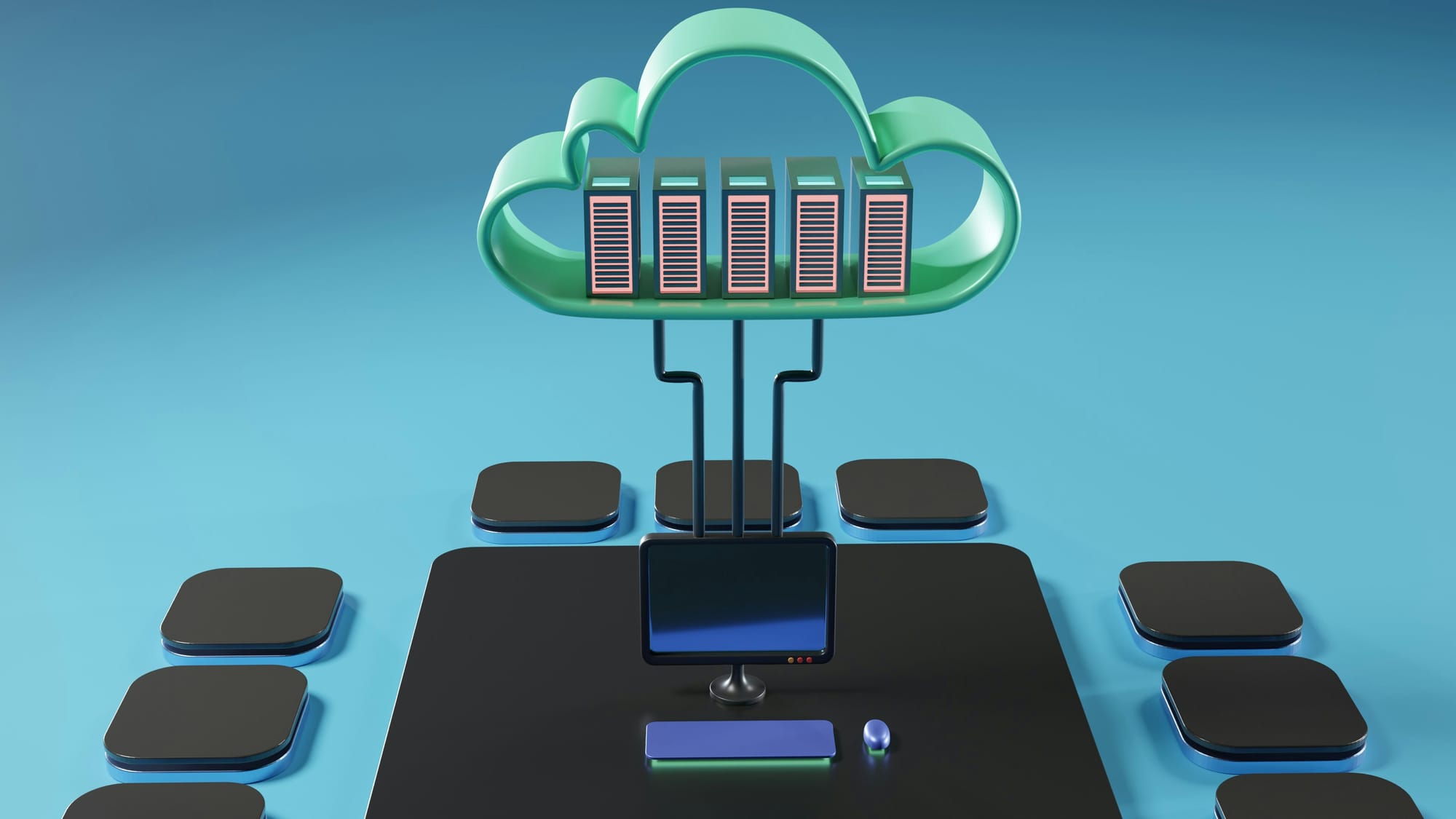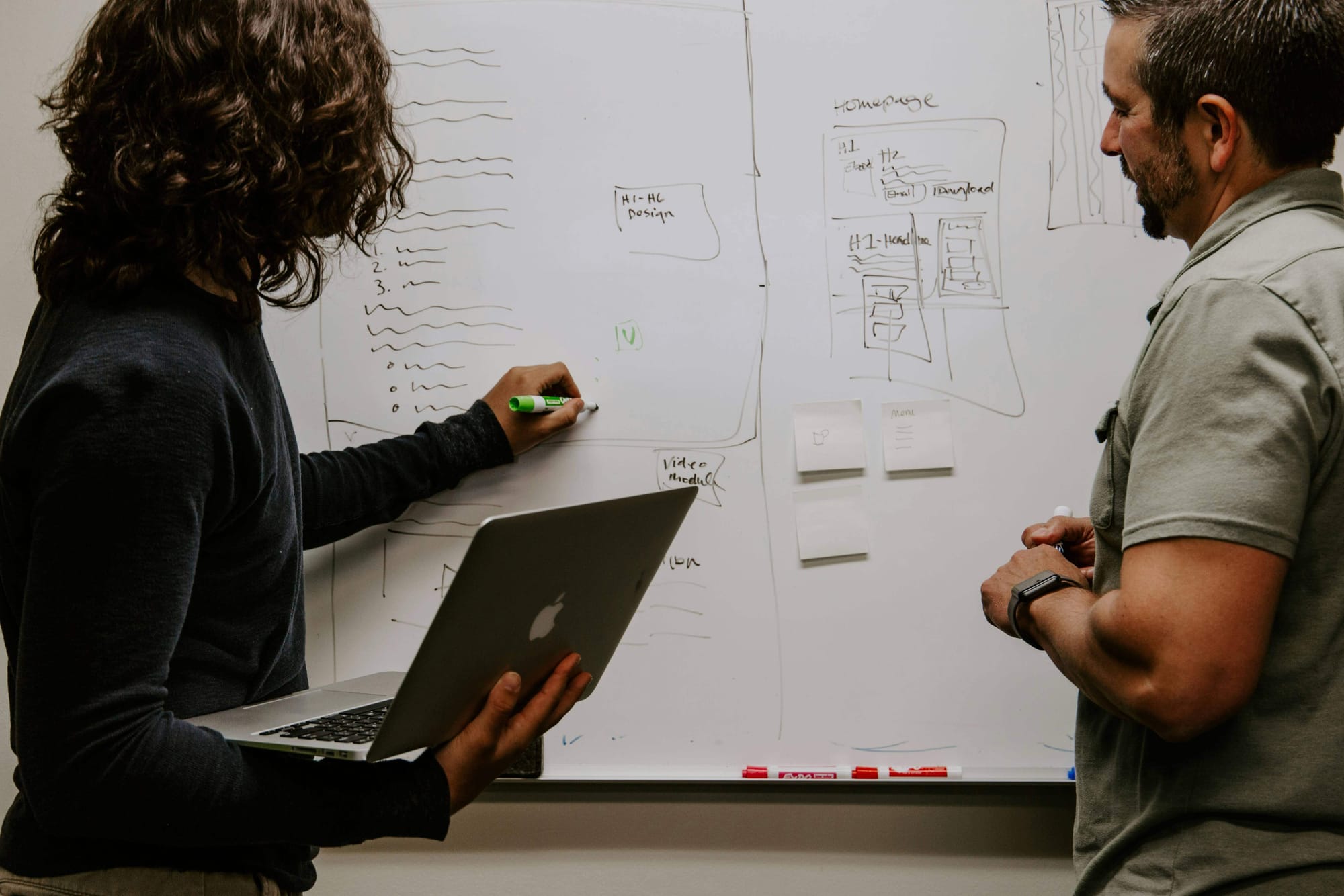According to the Equipment Leasing and Finance Association (ELFA), new business volume in the equipment finance sector increased 7.4% in 2021.
Heavy equipment finance firms demonstrated their traditional resilience by coming back stronger than ever in 2021, avoiding a worst-case scenario by only experiencing a single-digit reduction in new business volume year over year in 2020. The fact that portfolio performance has been high in 2022 despite the uncertain economy is reassuring.
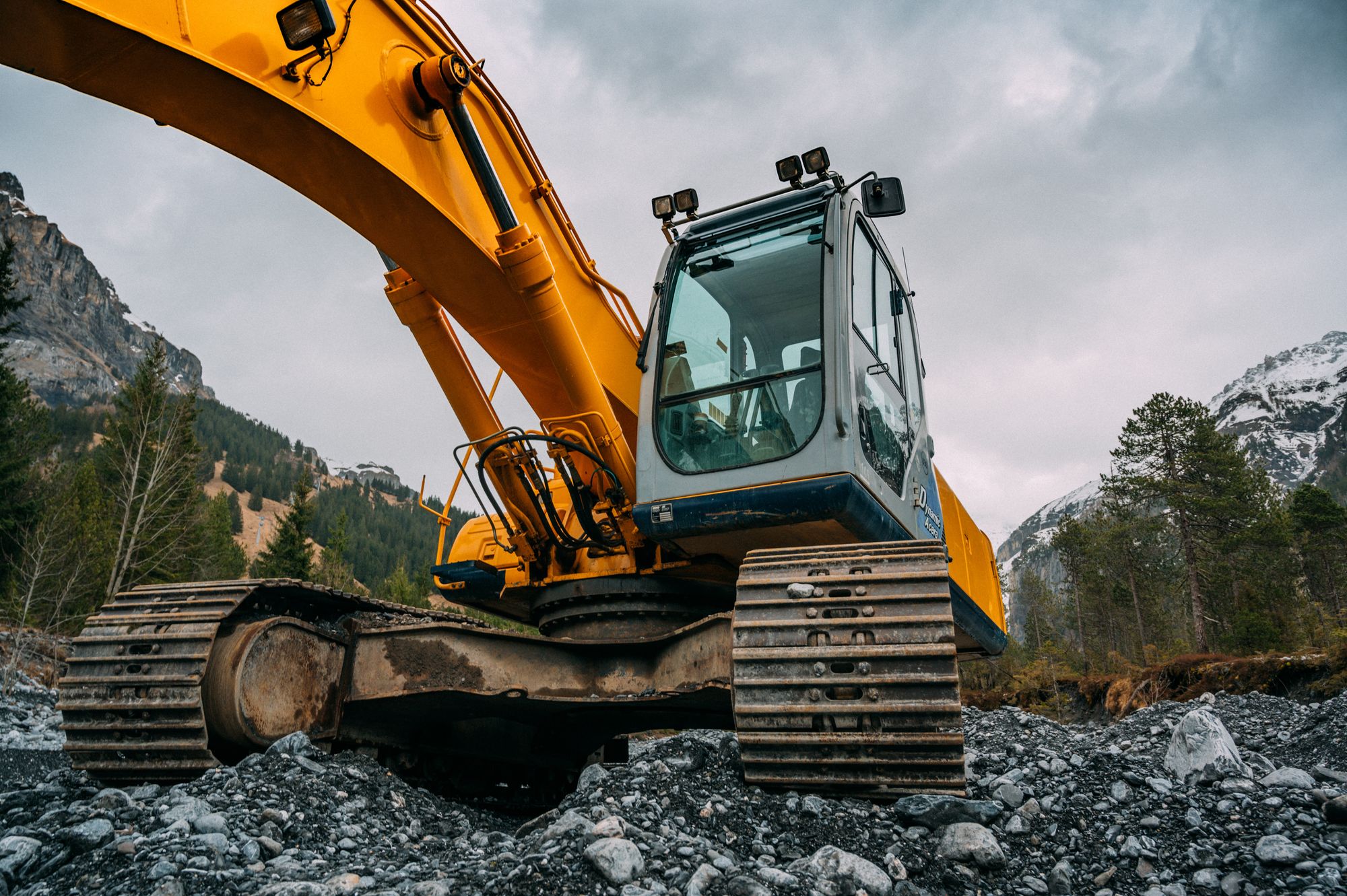
Construction equipment is a significant component of the infrastructure segment, which is a primary focal area for economic growth.
The market now offers financing for a wide range of machinery, including earthmoving, mining, material handling, road construction, concrete, and material processing equipment. This article serves as a guide towards understanding heavy equipment financing. Following are the topics included:
- What Is Heavy Equipment Financing?
- How Does an Equipment Loan Work?
- What Is the Importance of an Equipment Loan?
- How to Qualify for Heavy Equipment Loan?
- What Are the Features of Equipment Loan?
- What Are the Alternatives to Heavy Equipment Financing?
- Who Uses Equipment Loans?
- Heavy Equipment Financing for Bad Credit
- Key Takeaways
What Is Heavy Equipment Financing?
A lender or other financier will give funds for a heavy equipment loan so that the borrower can buy heavy equipment like excavators. These loans are provided by lenders to small enterprises who want to operate in the construction or related industries but lack the funds or ability to pay for the equipment up front. If you run a small business and need to buy any kind of equipment, the price can frequently be too high.
- If you use equipment finance, you can either borrow money from a lender or lease the equipment.
- The borrower then pays back the loan over a predetermined time period, plus interest. The heavy machinery itself typically serves as collateral for the funding in agreements for heavy equipment financing.
- By doing this, you can purchase the machinery or other equipment you might need to run your business, grow it, or make money without having to pay the entire cost up front.
- Any type of machinery that is capable of moving soil, construction, or carrying out another similarly demanding task is referred to as heavy-duty equipment. Forklifts, bulldozers, tractors, excavators, engineering equipment, and other heavy-duty construction machinery are typical examples.
- Even if you have the funds on hand to purchase the construction equipment you require, it may be a good idea to choose heavy construction equipment finance so that your cash flow can be allocated to other beneficial sources.
- Agriculture-related enterprises also use this sort of financing. In order to increase productivity, farmers use expensive machinery, which increases turnover. However, it frequently doesn't make sense to jeopardize cash flow in order to buy this equipment up front.
- The aviation sector is another example. In most situations, long-term leases for up to 25 years are used by airlines to rent their aircraft.
Continue reading to discover how to get approved for this kind of finance, as well as the cost and conditions of heavy equipment financing.
How Does an Equipment Loan Work?
Obtaining a business equipment loan when a businessman requires equipment could be a wise financial decision. One can utilize these loans to acquire almost any kind of business equipment, but the amount that can be borrowed depends on the kind of equipment the entrepreneur is purchasing as well as whether the equipment is new or used.
- A car loan works similar to an equipment loan. There is no need for extra collateral because the equipment is used to secure the loan. The majority of equipment loans typically have set interest rates between 8% and 30% and a defined term length, guaranteeing that the monthly payments will never change.
- The equipment's characteristics and expected lifespan are used to determine the term extension. Only a few lenders would agree to extend an equipment loan's term past the equipment's fixed projected useful life.
- You get a loan with heavy equipment financing that covers 80% to 100% of the cost of the machinery. Because the equipment you're buying serves as financing collateral, you won't need to put down a sizable deposit or offer security.
- Until the loan for your construction equipment is repaid, you make monthly payments toward it. The terms of each financing program are unique and depend on the lender, loan amount, and type of equipment you're purchasing.
- Most companies make long-term investments in machinery using this sort of business finance. Once the loan is fully repaid, the heavy equipment is yours entirely. This implies that you may continue to use it as long as it remains functional.
What Are the 3 Types of Financing?
You can come across debt financing, equity financing, or combination financing, which are the three basic types of financing. These all diverge from leasing.
- Debt financing- Debt financing is similar to a standard instalment loan, where you borrow a one-time, fixed sum from the lender and repay it over time in accordance with the terms of your loan.
- Equity financing- You obtain finance as part of an equity financing in exchange for a percentage of the equity in your company; you are not required to pay back the money you received.
- Combination financing- A combination of the two is combination financing. This sometimes entails taking capital in return for stock in a company, with the idea that at least a portion of the money will be repaid later on.
All three of these are different from leasing since there isn't always a road to ownership with leasing. For instance, a leasing agreement purchases the equipment for you rather than you receiving funds and buying it. You won't have to make any payments after the end of your lease term, but the equipment also won't be yours.
If you still want the equipment at the end of the lease, there may be a buy-out clause that allows you to do so for a very low cost.
You can also set up payment notification alerts for smooth payment processing on your ERP platform. To know more about role of ERP in Heavy Equipment Industry you can check out our article ERP for Heavy Equipment Industry- A Complete Guide.
What Is the Importance of an Equipment Loan?
Every business owner is aware of the value of using the newest technological tools and equipment in their operations. These could consist of heavy machinery, computers, office supplies, trucks, other vehicles, data processing equipment, servers, and medical equipment. However, a significant portion of the capital will be used to purchase this gear and equipment.
As a result, it is wise to stretch out the expense of this equipment over a number of loans so that the capital investment can be used for other purposes. Additionally, equipment loans provide tax advantages to business owners.
Advantages of Financing
Very few businesses have the cash on hand necessary to make an upfront purchase of pricey equipment. If used to purchase new equipment, that sum of money could substantially affect cash flow, especially for start-up companies.
It also makes sense for more established enterprises to avoid buying equipment, especially if they plan to replace it with a newer model later on. This enables business owners to avoid using working capital or cash reserves that may be utilized to fund projects for business growth and to enhance cash flow.
Flexibility and scalability- You can expand your business more quickly without making a significant financial investment if you finance a piece of equipment. equipment financing is a fantastic method to expand your business, whether you're increasing production or purchasing more vehicles. On your balance sheet, the equipment is shown as an asset. The asset is amortizable.
Tax efficiency- Some forms of equipment financing, such as leasing and sale-leaseback transactions, are more tax advantageous than outright purchases. This is so because renting an item is a recurring expense that is tax deductible.
Availability of additional credit lines- Access to alternative lines of credit is one of the less well-known but significant benefits of leasing equipment rather than purchasing it outright. Equipment financing is typically a predictable monthly expense for similar reasons as tax efficiency, allowing you to obtain more business financing at the same time.
This is a big benefit for some organizations; for instance, you may obtain the necessary equipment and obtain a company loan for marketing. When you finish paying for the equipment, you will own it, thus you are building equity.
Simple to budget and manage- You may spread out the cost over time using equipment financing's predictable instalments. As a result, managing cash flow is simpler, allowing you to concentrate on operating the firm. There is no limitation on the wear and hours of your equipment. By paying in instalments, you will increase your equity.
Advantages of Lease
When the machine is returned, you'll benefit from additional freedom and perhaps an easier schedule for replacing the equipment.
- A chance to reduce your upfront payment.
- Your payments might be lower than they would be with an instalment loan.
- Pay the rental fee for the heavy equipment, give it back at the end of the lease, or use your buy option.
- Instead of investing in equipment, use equity elsewhere in your company.
Heavy Equipment Financing Tax Benefits
Financing heavy equipment has a number of tax advantages. The government offers incentives to business owners that rent or borrow the equipment they require to launch and expand their enterprises. The following are a few tax advantages of financing heavy equipment.
Section 179
Due to this, companies which finance or lease equipment are able to write off its entire cost, up to a maximum of $1 million, in the year of purchase. You don't have to depreciate the cost of the equipment over time according to Section 179. The tax savings come to you all at once instead.
The final alternative is to depreciate your construction equipment annually and benefit from a modest tax break throughout the equipment's useful life.
By requesting a depreciation deduction using IRS Form 4562, you can write off a percentage of the cost of business property. To make sure you're utilizing the tax advantages of heavy equipment loans to their full potential, we advise speaking with a tax expert.
Lease payments and interest expense
You can deduct loan interest or lease payments as business expenses on your tax return even if you don't use Section 179 (because you don't qualify or because your tax advisor advises against it).
How to Qualify for Heavy Equipment Loan?
The best approach to be approved for heavy equipment loans is to demonstrate your ability to pay back the money borrowed. Lenders may consider the cash flow of your company, its credit rating, or even your own credit rating.
- Poor personal credit ratings might not prevent you from getting a loan for heavy equipment. However, you can also want to raise your own credit score to increase your chances of approval.
- The greatest strategies to do this include decreasing debt and improving your debt-to-utilization ratio. The latter is possible if you expand your credit limit by paying off existing debt, making a successful application for more credit, or doing both.
- Your chances of qualifying increase over time because many bankers and lenders require you to have been in operation for a while. Furthermore, if you are prepared to put some money down, you might improve your chances of getting accepted.
- The best approach to be approved for heavy equipment loans is to demonstrate your ability to pay back the money borrowed. Lenders may consider the cash flow of your company, its credit rating, or even your own credit rating.
Cash flow
You may be eligible for construction equipment financing based on your cash flow even if your credit isn't fantastic but your business revenues are strong (compared to the cost of the equipment).
Terms and costs
If you get approved for a heavy equipment loan, you may be wondering what this actually implies for your company. Because the equipment is used as collateral, heavy equipment loans fortunately have reasonable rates and conditions.
The lender may take possession of and sell the equipment to recover its loss if you fail to make payments on the loan. Given that the lender has that assurance, they frequently offer generous conditions.
Down payment
By making a down payment, you can be approved for heavy equipment financing even with bad credit and modest business income. For instance, if you wish to buy equipment worth $25,000 and have $5,000 to invest, you might be able to get financing for construction equipment.
The flexibility of construction business loans is a plus. In most cases, a lender will be able to provide you with financing unless you have an active bankruptcy or unpaid child support obligations. Just bear in mind that your interest rate will be an accurate reflection of your creditworthiness.
For example, if you have bad credit, you might be eligible based on other mitigating circumstances, but you'll pay a higher interest rate since lenders view you as a bigger risk.
Funding speed
Contrary to unsecured loans, funding for construction equipment doesn't have a strict underwriting procedure. As a result, you can apply for this kind of company loan and receive cash in as little as two business days.
The vendor from whom you are acquiring the equipment is an additional party in this equation. Once you get the money from the lender, you'll want to make sure you have an estimate or invoice from the vendor and that they can act promptly to get the equipment into your hands.
Credit rating
The stronger your credit, like with most financial items, the better the financing alternatives and goods that are offered to you. If you want to get the best interest rates and payback conditions when it comes to equipment financing for your business, you should expect to have a credit score of at least 650 to 700.
However, there are some lenders who are ready to disregard these restrictions, allowing credit ratings as low as 575 or even all credit scores. A low credit score or a poor credit history, however, may ultimately lead to fewer financing possibilities and more expensive borrowing.
Bank’s role
Loans for business equipment are widely available from banks. If your company has a preferred bank, it may be worthwhile to inquire about their equipment financing options. But you should explore your possibilities outside the local bank office. With an internet connection, you can simply investigate the world of online-only banks or alternative financier.
Better terms might be available with some of these options than at your local bank location. Researching banks and alternative financier is a sensible move because it allows you to contrast and compare them.
Choose the top lenders for heavy equipment
There are numerous heavy equipment lending firms to choose from. Choosing whether you'll work with a bank or a non-bank lender is an excellent place to start.
- Heavy equipment loans are provided by numerous large national banks, including Wells Fargo, Chase, and Bank of America.
- Smaller local banks and credit unions may also offer this kind of financing. These lenders often have the lowest rates, but because of their low acceptance rates, qualifying can be difficult.
- Working with non-bank lenders will provide you access to a wider range of lending products and laxer regulations. Just remember that these lenders are frequently more expensive.
- Before making a decision, you might want to shop around and compare your options if you're serious about getting the greatest rates.
Utilizing a company financing marketing platform is a terrific approach to compare loan rates and terms. You won't have to approach several lenders one at a time; you can compare multiple offers at once.
How Do You Apply for a Heavy Equipment Loan?
Although each lender's application procedure varies slightly, the following is what you can often anticipate you'll need to complete to determine your eligibility for financing:
Verify the state of your credit.
Before deciding on your application, equipment loan providers will almost probably want to examine your credit score, either personally or professionally. They base a lot of their assessment of your possibility of loan repayment on your credit score.
- Keep in mind that while the equipment itself acts as security for equipment loans, having less-than-perfect credit won't always preclude you from getting financing.
- Although some lenders are more lenient, lenders will often favor lending money to business owners who have personal credit ratings of at least 650 or business credit scores of at least 75.
- Before you apply for an equipment loan, be sure your credit is in excellent standing to improve your chances of approval.
- Before submitting your application, you can actively work to raise your scores if they are a little lower than you'd want.
Compile the data related to your company.
Since the machinery itself serves as collateral for equipment loans, applicants are typically need to furnish less information than they would to standard small company lenders.
The majority of the time, they'll ask for basic information about your company, such as ownership details, contact details, federal tax ID numbers, and if it's a corporation, partnership, LLC, or sole proprietorship.
Gather financial records.
Additionally, you must compile the financial records of your business. Lenders of equipment loans often want to examine tax returns, bank balances, and financial statements. They'll probably need information regarding credit scores as well.
Make a thorough plan.
How will you invest the equipment loan? Lenders will be curious. The more comprehensive and precise your strategy is, the more probable it is that equipment loan lenders will approve your application.
- Look for lenders of equipment loans. Once you've acquired the data required to obtain a loan, it's time to compare service providers.
- If it's possible, use the aforementioned criteria to locate a lender who is prepared to provide you with the funding you require on agreeable conditions that are appropriate for your particular circumstance.
- When compared to qualifying for a standard small business loan from a bank or other traditional financial institution, applying for an equipment loan is typically considerably simpler—and faster.
What You’ll Need to Apply?
Do you and your company meet all the criteria to be approved for financing for heavy equipment? Great! The next step is to gather all the required documentation and loan requirements before beginning the application process.
The following documents are required to apply for loans for heavy equipment:
- A cancelled business check
- A driver's license
- Recent bank statements
- Business and personal tax returns
- Equipment quote or vendor invoice
- Financial statements (outlining income, expenses, and profits)
Depending on the lender you select, you may have to submit a certain quantity of documents. For instance, while a bank will need a tonne of papers, an online lender will only need a little. There is a trade-off between time, money, and effort, but a bank will probably provide a greater interest rate than an online lender.
What Are the Features of Equipment Loan?
The borrower must be fully aware of the sort of equipment needed for their business as well as the lender who can offer them the finest terms. We've outlined a few crucial things to keep in mind when submitting an application for an equipment loan.
Loan amount- This varies depending on the lender. When determining the loan amount, the lenders take into account the cost of the equipment and the borrower's credit history. In general, one can receive up to 75% of the cost of purchasing used equipment and up to 90% of the cost of purchasing new equipment.
Security/Collateral- Since the lender is hypothecated by the acquired equipment, no extra security is needed. However, the lender might want more collateral for larger loans. Eligible parties include individuals, partnership businesses, corporations, trusts and societies, miners, and contractors. More than three years of business continuity should be provided.
Annual revenue- While banks prefer to see that a company routinely generates at least $100,000 to $250,000, online lenders and lenders who engage with startups often have more relaxed requirements
Repayment tenures- The typical payback period is from three to seven years, with a six-month moratorium. Repayment terms for heavy equipment financing often correspond to the anticipated lifespan of the equipment being borrowed.
As a result, many borrowers will be interested in financing new equipment when a loan is paid down and the borrower won't be paying a loan on equipment that cannot be used. When the debt is paid off, you may still be able to utilize the heavy equipment, even though it may be outdated by then. Expect payback terms for loans for heavy equipment to range from one to two years to roughly ten years.
Period of operation- Banks may offer equipment loans to companies that have been in business for at least two years, but startups are likely to have better luck with online lenders or the SBA.
Interest Rate- Depending on the size of the loan, your credit score, the age of your firm, and whether you make a down payment, the interest rate on a heavy equipment loan can vary significantly. Equipment vendors occasionally advertise loans with interest rates ranging from 0% to 5%, but in order to qualify, you often need to have good credit.
What Are the Alternatives to Heavy Equipment Financing?
A large piece of equipment that you require for your business might be bought through heavy equipment financing. Nevertheless, there are other options available to you, especially if you're a really qualified borrower. Consider these alternatives for a moment.
SBA CDC/504 Loan
SBA loan is the greatest option if you're a highly qualified borrower seeking the best rates on heavy equipment financing.
Small Business Administration loans are commercial loans that are backed by the agency. While the SBA offers a number of funding options, we advise choosing an SBA CDC/504 loan for customers searching for financing for heavy equipment.
Major fixed assets, primarily heavy equipment and commercial real estate, are purchased using a CDC/504 loan. A 504 loan will have around half of its funding given by a bank and guaranteed by the SBA. The remainder will be funded by a certified development firm recognized by the SBA (CDC). Additionally, you'll most likely be required to make a 10% down payment.
You must satisfy the following criteria to be eligible for a 504 loan:
- Comply with owner-occupation standards.
- A personal credit score of at least 650.
- Comply with the SBA's small business size requirements, which vary by industry.
- With your proposal, promote other public policy objectives or create or retain jobs.
- Have a maximum tangible net worth of $15 million and a minimum average net income of $5 million for the two years prior to application.
- Operate for profit and avoid working in a sector that is largely passive, like real estate investing.
- A 504 loan has a $20 million maximum funding amount with 10- to 25-year repayment durations and 10% to 20% interest rates.
Equipment leasing
Instead of loans, lenders can also help business owners with equipment leasing. According to the equipment Leasing and Finance Association, leasing is a viable option for businesses using the equipment for less than three years.
You would pay a set charge each month to essentially rent a piece of machinery rather than financing the entire purchase of it. You have these options for the equipment at the end of the lease:
Purchase outright
Due to the absence of interest and leasing payments, this option will be the least expensive overall. However, it is out of the grasp of the majority of small and large businesses.
Long-term Loan
If you can't get a 504 loan, a long-term loan is still a good choice. Long-term loans are just what their name implies—loans that you return over a year or longer, typically in monthly instalments.
- Long-term loans typically have low interest rates for those who are eligible, making them a smart choice if you want to finance heavy equipment.
- Even if long-term loan amounts don't offer as much funding as 504 loans do, you can still get loans up to $20 million with 25-year periods.
- Depending on how eligible you are, your interest rates could range from 10% to 20%.
- If you're applying through a bank, you'll need to meet some very strict requirements in order to be eligible for a long-term loan.
The majority of borrowers with a credit score of at least 650 and a successful business are eligible for long-term financing from a bank. You might be able to qualify with an internet lender even if your credit score is lower and you have less company experience.
Online equipment loans
Although they could have higher interest rates, online lenders who focus on financing construction equipment can typically give borrowers more flexibility than banks. For instance, some online lenders allow borrowers to adjust their repayment schedule to account for seasonal variations in their cash flow.
They typically have fewer stringent requirements for time in business, credit score, and annual income in addition to being quicker to fund.
Leasing Vs Financing Heavy Construction Equipment
You must make a crucial decision regarding whether to purchase your heavy equipment outright or through a loan or lease. Leasing is comparable to renting out equipment. In essence, you pay a set sum each month to have access to the equipment.
You must either buy the equipment outright or return it to the vendor at the conclusion of the lease term.
If you lease equipment, you sign an agreement that is similar to renting it—you agree to pay a monthly fee for a specified time period, like 2 years. At the end of 2 years, you can opt to return the used equipment, buy it, or sign another lease for new equipment.
- The purchase price will vary depending on the type of lease you have, but you won't become the owner unless you do so.
- Some lease types don't even list the equipment on your balance sheet. In contrast, if you take out a loan, you effectively become the owner of the equipment and it will appear on your balance sheet. After making your regular payments for the equipment during the loan term, you become the sole owner of it.
- When a business owner is certain they will need to update at the conclusion of the lease period, they frequently use leases for equipment that soon gets out of date.
- However, heavy-duty construction equipment can perform for thousands of hours, so a loan might be a more economical option.
- You will own the equipment at the conclusion of the term, so you won't need to bother about replacing it.
- Although it's a popular misconception, leasing is not always less expensive than buying. To determine which choice is best, make sure to compare pricing and perform the necessary calculations beforehand.
In general, financing equipment is more affordable in the long run than leasing, even if the terms of a lease for heavy equipment are frequently less severe. It can also be simpler for you to be approved for a lease than financing.
Also take into account your situation after repayment. If you lease, you can then begin a new lease for new equipment, while after you pay off the financing, you own the equipment as an asset. Both have advantages and drawbacks.
Heavy equipment lease:
- Lease contract
- A regular monthly payment for use over a predetermined length of time
- Return of the equipment to the owner at the end of the lease
Heavy equipment loan:
- Purchase agreement;
- Variable or fixed monthly payments;
- Following the last payment, the borrower fully owns the equipment.
Who Uses Equipment Loans?
Equipment loans are available to companies in all sectors of business. These are few examples:
Artistic firms- Similar to other businesses, digital marketing firms can use equipment loans to purchase equipment like scanners, printers, and photo and video equipment.
Building contractors- Bulldozers, backhoes, excavators, and other heavy-duty equipment can be purchased using an equipment loan in order to construct homes and commercial structures.
Auto body shops- To pay for the purchase of diagnostic instruments, welding equipment, specialty auto parts tools, and other body shop essentials, mechanics may turn to an equipment loan.
Farming enterprises- Equipment loans can be used by those working in the agricultural sector to buy tractors, irrigation systems, milking equipment, ploughs, and other equipment.
Shipping firms- A shipping company owner may require an equipment loan to increase the number of trucks in their fleet.
Manufacturers- An equipment loan can be used to buy conveyor belts, specialized manufacturing equipment, and wrapping and packing machines.
Medical professionals- In order to purchase medical equipment such as examination tables, x-ray machines, ultrasound machines, EKG machines, and more, a dentist or medical office may apply for an equipment loan.
Dining places- Equipment loans can also be used to finance appliances including deep freezers, stoves, barbecues, and deep fryers.
Breweries- Equipment loans can be used to purchase brewery tanks, grain milling and handling systems, boilers, pumps, and other equipment for a new microbrewery or even a massive industrial enterprise.
IT businesses- Managed service providers and other IT businesses can purchase PCs, servers, software, hardware, wiring, cooling equipment, and other items via equipment loans.
What Types of Equipment Come Under Loan?
Almost any kind of item can be purchased with a loan for equipment. In order to expand the business, different machinery or equipment may be needed, depending on the industry in which your firm operates. The following are typical equipment categories for which a business loan is used:
- Tools
- Office furniture
- Landscaping equipment
- Agricultural and farm machinery
- Small equipment
- IT equipment, such as servers or networks
- Machinery, industrial machinery, or factory equipment
- Heavy equipment
- Office equipment, such as computers or copiers
- Retail items, such as stands, mannequins, and shelving
For larger projects, for instance, landscapers frequently need pricey tools. There may be trenchers, bulldozers, scrapers, and excavators used. These devices can cost tens of thousands of dollars each.
Even though the company might be able to get by with renting these items as needed, it will eventually need to buy them for improved accessibility and to develop the business.
Heavy Equipment Financing for Bad Credit
Compared to other forms of finance, borrowers with negative credit are more likely to be approved for a heavy equipment loan.
- Loans for heavy equipment are less hazardous for lenders since the equipment they finance serves as collateral.
- If you don't pay back the loan, the lender has the right to seize and sell the equipment to make up for their losses. As a result, having bad credit doesn't prevent you from getting a loan.
- Borrowers with poor credit who can demonstrate stable income or put down payments on the equipment will probably still be approved for funding.
- With bad credit, you might still be approved, but you'll probably pay more in interest than borrowers with strong or exceptional credit.
- To get the best conditions, you might think about improving your credit score before applying if you have the patience to wait for funding.
How Deskera Can Assist You?
Deskera is the One-Stop Platform for Managing Your Business. Get the advantages of ERP, Integrated Accounting, CRM, and HR Software for Business Growth — all in one place. Deskera CRM comprises all the solutions including CTAs, landing pages, email marketing, and so on, that can help you grow your customer base.
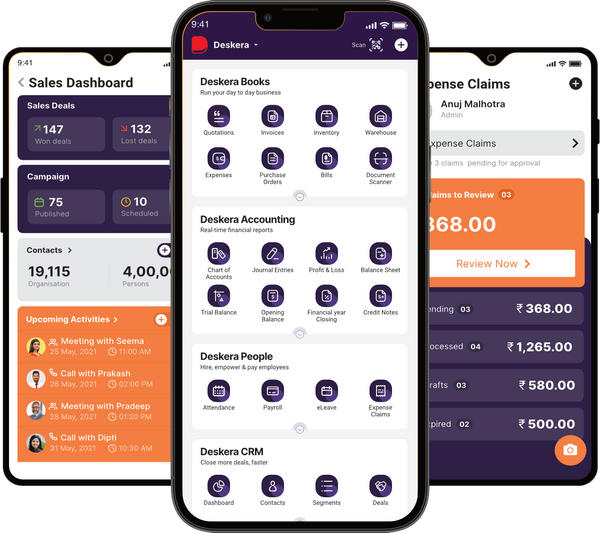
You can automate all the significant accounting tasks, including invoicing, expenses, and billing, with Deskera Books.
Deskera People is a specialized tool that simplifies the management of employee payroll, deductions, attendance, and leaves.
Key Takeaways
- Many small businesses find that equipment loans are the ideal answer, but not all of them do. You must weigh the benefits and drawbacks of this common financing option to decide whether an equipment loan is appropriate for your business.
- An equipment loan gives a business owner the money they need to buy the tools and machines they need for their operations. Since the lender has been hypothecated the equipment or machinery that was purchased, these loans are primarily secured loans. This enables the borrower to have lengthy repayment terms while still using the equipment.
- Some business owners decide to lease equipment rather than obtain an actual loan. Although equipment leasing may have its benefits, with an equipment loan, the borrower will eventually be the owner of the equipment. In the case of a lease, the equipment must be returned after the lease term is over.
- With financing for heavy equipment, your payments gradually increase your equity. You will fully own the machinery once your loan is repaid, and it will appear as an asset on your company's balance sheet.
Related Articles
